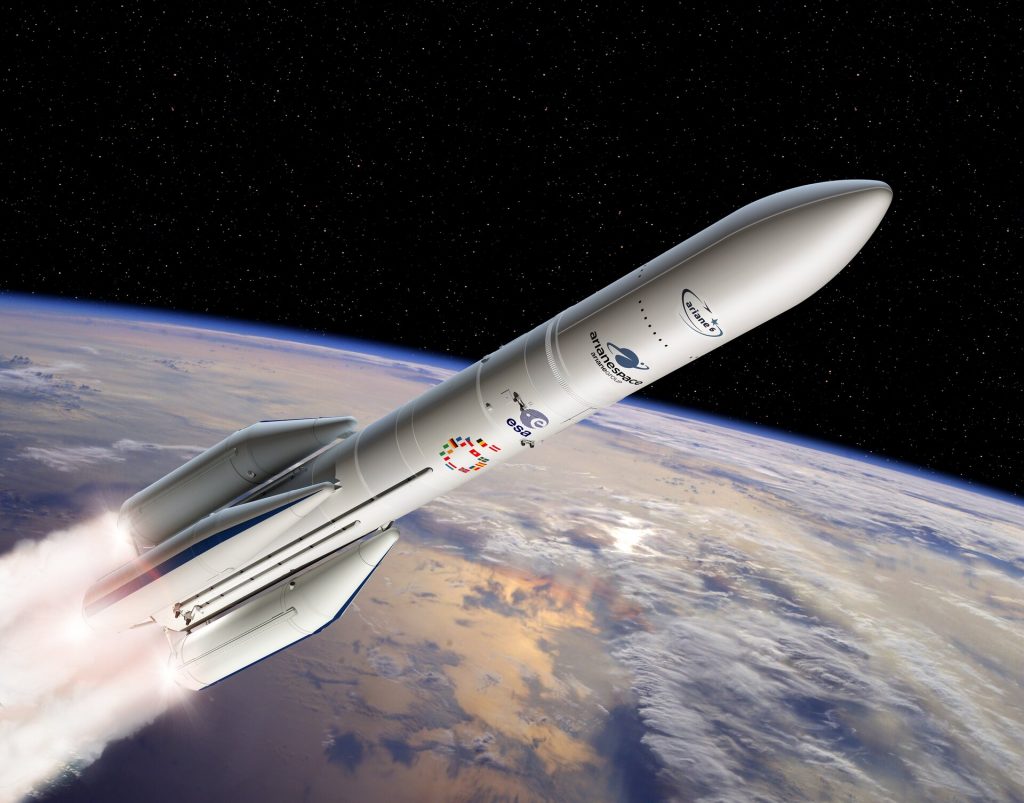Ariane 6 explained; concerns remain
June 28, 2023

Arianespace has provided a detailed timetable for the introduction of the new Ariane 6 version. The final Ariane 5 rocket will launch on July 4th.
Ariane 6 is already extremely late and the original objective was for the rocket to seamlessly take over the launch missions from Ariane 5. While managers have stressed that there are no major development issues remaining, it is likely that the new rocket’s inaugural flight will not happen until the first half of 2024. Launch vehicle assembly at its Kourou (French Guiana) launch pad is scheduled for this coming November. This will be followed by a test flight.
Arianespace is in the happy position of having 28 launches pre-booked, of which an 18-launch contract from Amazon’s Project Kuiper broadband constellation is key.
However, it is this contract which has generated worrying comments. For example, industry consultant Tim Farrar (of TMF Associates) is expressing doubts that by 2026 Arianespace will have achieved its target of 1,600 satellites in orbit for Kuiper.
Arianespace says that by 2025 it could be flying nine to 10 launches per annum (thanks to its ‘Block-2’ variant) and specifically with the Project Kuiper demands in mind. But Arianespace executives admit that the 9-10 targets could slip to 2026 or 2027/28 “at the latest”.
As well as accepting delays, it is also increasingly clear that Arianespace’s overall objective of reducing by 50 per cent the cost of building and launching these new versions will be missed. At best – according to the European Space Agency – Arianespace will achieve a 40 per cent reduction in build and launch costs.
Other posts by Chris Forrester:
- Project Kuiper seeks India licence
- FAA suspends SpaceX launches
- SpaceX vs AST SpaceMobile
- Eumetsat explains Ariane 6 cancellation
- AST SpaceMobile examines emergency call obligations
- AST SpaceMobile promises US commercial services
- Starlink “transformative” in shipping
- Rivada Networks funding explained
- EU satellites disrupted by Russia
